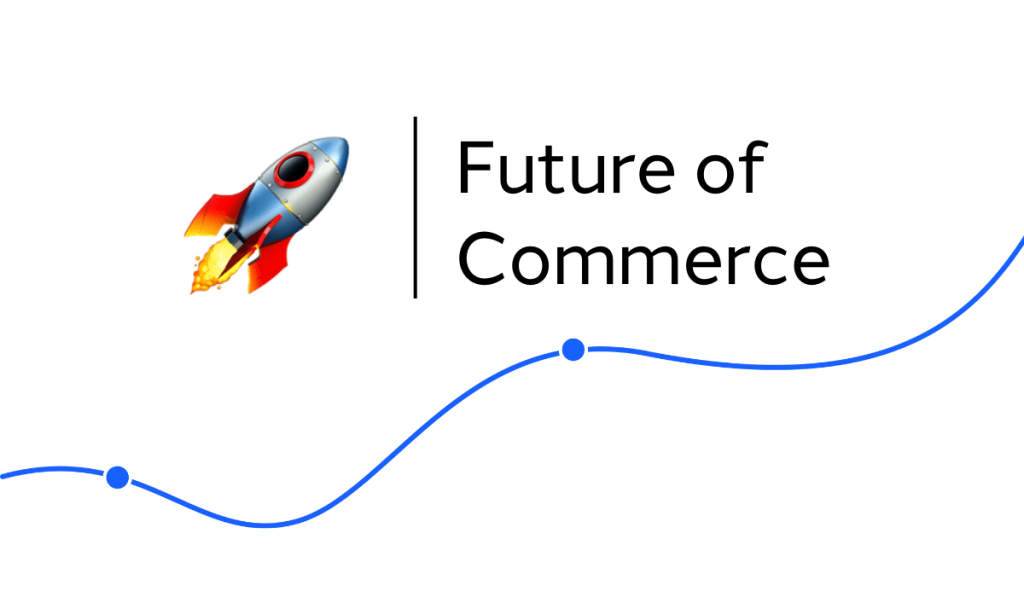Welcome to Katalys Connect – your weekly shortcut to the latest in performance marketing.
[Read time: 4 minutes]
What’s in this issue? Each week we pack the latest trends, actionable insights, and industry breakthroughs into a quick read – ensuring you’re not just keeping up, you’re staying ahead.
- Monetization: Catch up on the battle over AI content, YouTube’s new Shorts monetization rules, and how Microsoft’s Copilot is paying publishers while Google isn’t.
- Growth: Discover how SearchGPT leads AI referral traffic, brands tackle rising shipping fees, and TikTok proves its ads drive in-store sales.
- The Future of Commerce: Dive into Google Shopping’s AI upgrades, pay-by-bank options shaking up checkouts, and OpenStore’s new AI customer support tool for Shopify brands.

Content Control • The debate over Made For Advertising (MFA) sites and AI-generated content raises concerns for publishers. Should ad platforms decide what’s monetizable, or should the market dictate what content is valuable to advertisers?
- Automated controls against MFA sites or sites with AI content could unfairly target smaller publishers that rely on programmatic ads, cutting off revenue streams for legitimate sites trying to grow.
- However, publishers should note how X’s lack of content moderation alienated advertisers – proving that striking the right balance between ad volume and content quality is essential to maintaining advertiser trust.
Longer Shorts, Bigger Opportunities • YouTube’s latest update allows creators to upload Shorts up to three minutes long, expanding the platform’s potential for short-form content while introducing new monetization guidelines.
- Creators can now upload vertical or square videos up to three minutes long to be automatically classified as Shorts and eligible for the platform’s Shorts revenue-sharing model.
- Shorts longer than one minute containing third-party claims will be globally blocked from being watched or recommended, with no option for monetization, ensuring stronger enforcement of intellectual property rights
Copilot’s Publisher Compensation • Microsoft’s Copilot Daily, an AI-generated news and weather briefing, pulls from licensed publishers, signaling a major shift in how news is consumed and monetized in the AI era.
- Publishers face strategic choices around content licensing, balancing revenue from AI tools like Copilot Daily with potential loss of engagement on their own platforms. Negotiations now include factors like content summaries, exclusivity, and fair compensation.
- With Microsoft paying for content, questions arise as to why Google isn’t compensating publishers for its AI Overviews, increasing regulatory scrutiny on search engines’ AI advancements.

SearchGPT Leads Referrals • Even in its beta phase, SearchGPT is quickly outpacing competitors like Perplexity and Claude, generating four times the referral traffic to brands, showcasing its growing influence in the AI search landscape.
- SearchGPT’s 150% monthly growth rate is outpacing other AI search engines, making it a rising force for brands looking to optimize their presence in generative search results.
- OpenAI’s plan to integrate SearchGPT’s top features into ChatGPT by late 2024 signals a shift in AI-driven search strategies, pushing brands to adapt as traditional organic traffic from search engines may decline.
Brands Navigate Shipping Increases • With holiday shipping fees on the rise, e-commerce brands are staying competitive by locking in deals early, running promos sooner, and encouraging bundled orders to manage costs effectively.
- Brands are securing early shipping contracts and offering bundled shipping to spread out orders and avoid peak pricing during the most expensive shipping windows.
- By switching between carriers, optimizing packaging, and adjusting pricing strategies to account for surcharges, brands are maintaining profitability and ensuring timely holiday deliveries.
TikTok’s Impact IRL • TikTok’s new partnership with InMarket is helping brands track the real-world impact of their ads, showing how online exposure drives foot traffic and sales in physical stores.
- The partnership offers third-party verified conversion tracking, ensuring advertisers receive precise data on how their ads are directly influencing in-store visits, elevating the reliability of campaign results.
- In a study of 126 campaigns, 121 showed a significant lift in foot traffic, with TikTok outperforming industry benchmarks by 1.2x, proving the platform’s power to influence offline shopping.

Google Shopping Gets Smarter • Over the next few weeks, Google Shopping is introducing AI-powered features like dynamic filters, virtual try-ons, and personalized home feeds – redefining the shopping experience with enhanced targeting and interactive tools.
- AI-driven product searches now offer tailored recommendations, helping users find the most relevant products faster and improving ad targeting opportunities for brands.
- The personalized deals page presents users with offers based on their shopping habits, creating more effective promotional strategies for brands and opportunities to increase conversion rates.
Checkout Revolution • Alternative payment options like pay-by-bank are shaking up the dominance of credit cards in e-commerce, as merchants look to cut costs and streamline the checkout experience.
- With transaction fees much lower than credit cards, pay-by-bank methods are on the rise, and studies show that even small discounts (around 1%) can convince shoppers to make the switch, helping brands save on processing costs.
- To minimize friction in the buying process, merchants are increasingly placing pay-by-bank options alongside PayPal and Apple Pay, allowing customers to choose the method that works best for them and reducing the likelihood of cart abandonment.
OpenStore Unveils AI Support• OpenStore has unveiled OpenDesk, an AI-powered customer support tool aimed at cutting costs and improving efficiency for Shopify brands by automating key service functions.
- OpenStore ensures that any new tech developments, such as OpenDesk, also provide solutions for its core Shopify aggregation business, preventing resource conflicts while fostering innovation
- OpenDesk’s performance over the next 3-6 months will determine whether OpenStore expands its offerings and potentially raises more capital, underscoring its potential for future revenue growth in the B2B software space.


